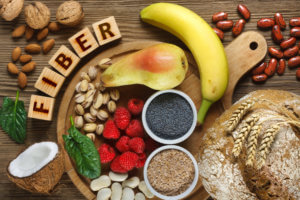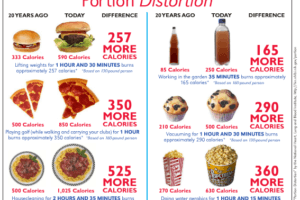May 17, 2019 at 5:30 pm Positive Choice Integrative Wellness Center Come listen to Esther Loveridge’s inspiring story of losing over 100 pounds in less than 2 years on a whole food, plant-based diet. In pain and diagnosed with bone on bone in her knees, Esther was overwhelmed when her physician said she had to lose 70 pounds to have knee surgery. She wasn’t sure she could accomplish it, but then a friend gave her a book on a whole food, plant-based diet that changed her life. Come hear how Esther lost the weight, went from size 24 to a size 6, avoided knee surgery and healed her thyroid eating so many of the foods, that we are often told will cause weight gain. Click here to Register for...
Read More
Hot Dogs as Bad for You as Cigarettes?
After a review of more than 800 studies, The International Agency of Cancer Research concluded processed meat is a “definite cause” of colorectal cancer — making processed meats equal in risk for colorectal cancer as tobacco is a risk for lung cancer. The World Health Organization classified smoked, cured, salted, and canned meats and meat with added sodium nitrite as a Group 1 carcinogen, meaning the scientific evidence firmly links it to cancer. That includes common meats like sausages, hot dogs, salami, bacon, ham, corned beef, smoked meat, beef jerky, luncheon meats, and canned meat. According to the research, as little as 1 ounce of processed meat per day – one hot dog or about six pieces of bacon – raises the risk of colorectal cancer by 18%. Unfortunately, the risk of other cancers were elevated as well. Red and processed meats increase the risk for stomach, prostate and pancreatic cancers, but the risk for colorectal cancer is the...
Read MoreMade from Camellia Sinensis plant, green tea is not fermented like black teas. Instead it is produced by steaming fresh tea leaves at high temperatures. When tea leaves are steamed instead of fermented, many of important plant nutrients are protected. Green tea contains a high concentration of nutrients called polyphenols which play a role in decreasing inflammation and swelling. Polyphenols also help protect the cartilage between bones and lessens joint degeneration. Green tea contains only 2% to 4% caffeine and stimulates the nervous system, heart, and muscles by increasing the release of certain chemicals in the brain called neurotransmitters. Consuming green tea or taking green tea extract containing 150 to 2500 mg of green tea catechins, an antioxidant found in green tea, daily for up to 24 weeks has been found to reduce total cholesterol and LDL cholesterol in people with high levels of blood fats or cholesterol. Early research also suggests that green tea extract might reduce damage to vein and artery walls in people with high...
Read More
The Incredible BULK! Curb Appetite, Boost Health with a High Fiber Plant-Based Diet
The Incredible Bulk 2019 Every year Americans spend 30 billion dollars on vitamin and herbal supplements hoping to boost their health, lose weight, and feel better. That comes to about $100 a year for every person including children in the United States for substances that are often of questionable value. Sadly, most do not gain their hoped for health benefits. Even sadder is the fact that so little focus is placed on the relatively inexpensive foods that add bulk to your diet and do provide clearly documented health benefits, as well as aid in weight loss. Colorful, high-fiber plant foods provide you with nutrients that curb appetite, lower inflammation, boost the healthy bacteria in your gut, and lower risk for disease. Unfortunately, people usually only give fiber consideration when they are constipated and then they supplement just enough to get the pipes unclogged. But plant fibers provide some of the most important nutrients you can ingest. Fiber is a type of carbohydrate that your body doesn’t have the digestive enzymes to break down and absorb. Once consumed, fiber travels through the digestive track to the colon, where trillions of bacteria can, and do digest it. People who eat low-fiber diets are at increased risk for heart disease, certain cancers, diabetes, arthritis, and possibly auto-immune disorders.1,2,3 In fact, low-fiber eaters have increased mortality rates for all causes.4 One reason for the increased mortality rate may be the protective anti-inflammatory affect of whole, natural fiber-rich plant foods. People who eat a diet high in meats, dairy, and eggs, and low in fibrous vegetables, fruits, beans and grains have increased blood levels of C-reactive protein, a known marker for inflammation. Inflammation around the major organs can be a trigger for the development of disease. In contrast, people who consume all or mostly plant-based diets (40 grams of fiber a day or more) have much lower levels of C-reactive protein and high levels of natural plant anti-inflammatories circulating in their blood.4 Fiber also provides health benefits for the gut. Bacteria in the lower GI tract digest fiber and produce short-chain fatty acids. These fatty acids fuel the delicate cells that line your intestinal tract and have a tremendous impact on overall gut health....
Read More40 Million lbs of Produce Saved from Waste! 1.2 Billion lbs of Water Saved! 1.5 Million lbs of Produce Donated! Get a big, beautiful box of slightly imperfect, but utterly fresh and delicious produce delivered to your doorstep at great prices (30% less). You have the option to customize your boxes and plenty of organic produce to choose from. Help save our planet, help heal your body, and wake up to a box full of vitality! Order your box by the end of March 2019 and use the promo code – POSITIVECHOICE50 and get HALF OFF YOUR FIRST box!!!!!!!!!!...
Read More
Portion vs Serving Size
An important part about eating healthy is choosing the appropriate amounts of food to eat. When it comes to deciding how much to eat, the terms serving size and portion size tend to be used interchangeably, but they don’t mean the same thing. Serving size is a standardized amount of food, typically used to quantify recommended amounts by either MyPlate food groups or quantities typically consumed by people on nutrition facts labels. Portion size is the amount of food you choose to eat, which may be more than or less than a serving. Measure foods regularly to get an idea of what serving sizes look like. The more regularly you measure foods, the easier it becomes to pick appropriate amounts of food for your body so that you are not too full or too...
Read More
